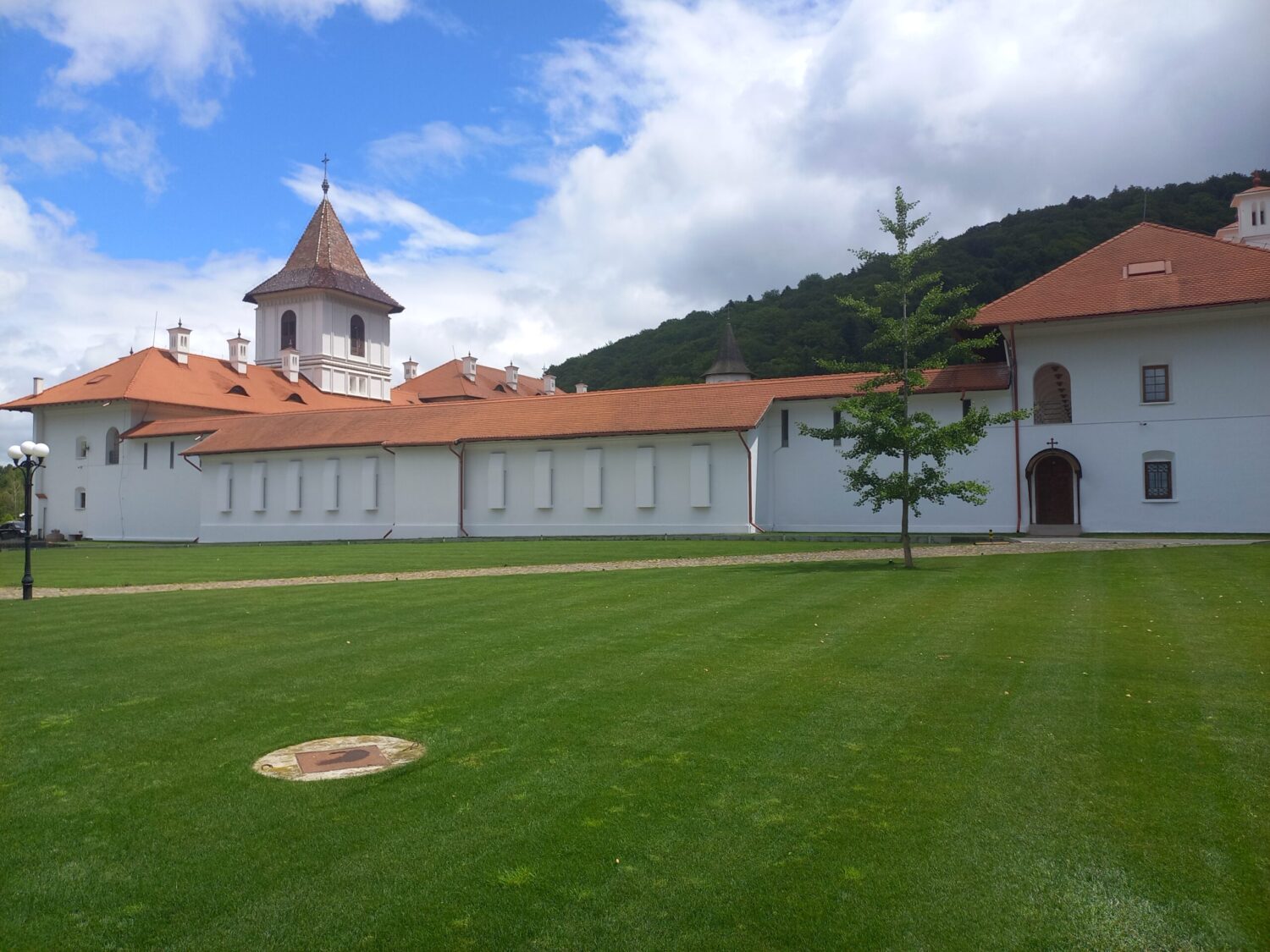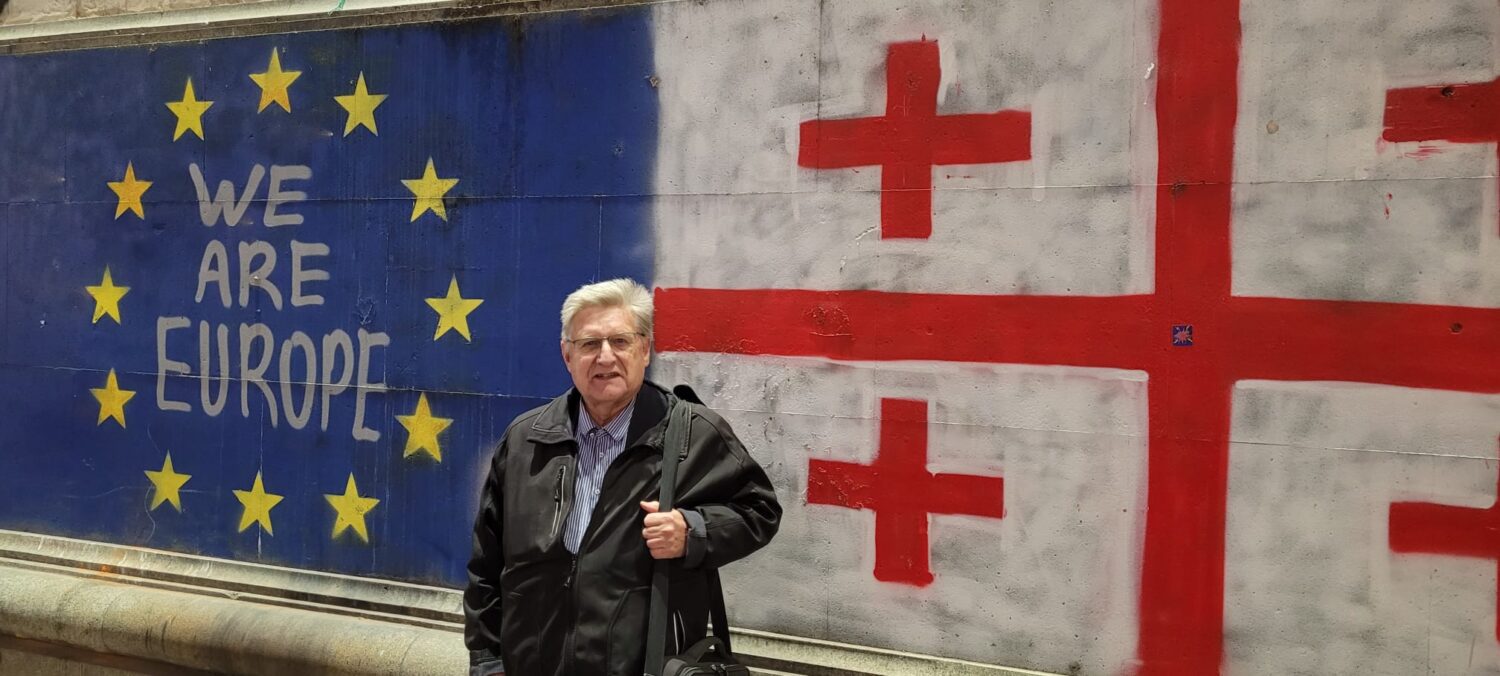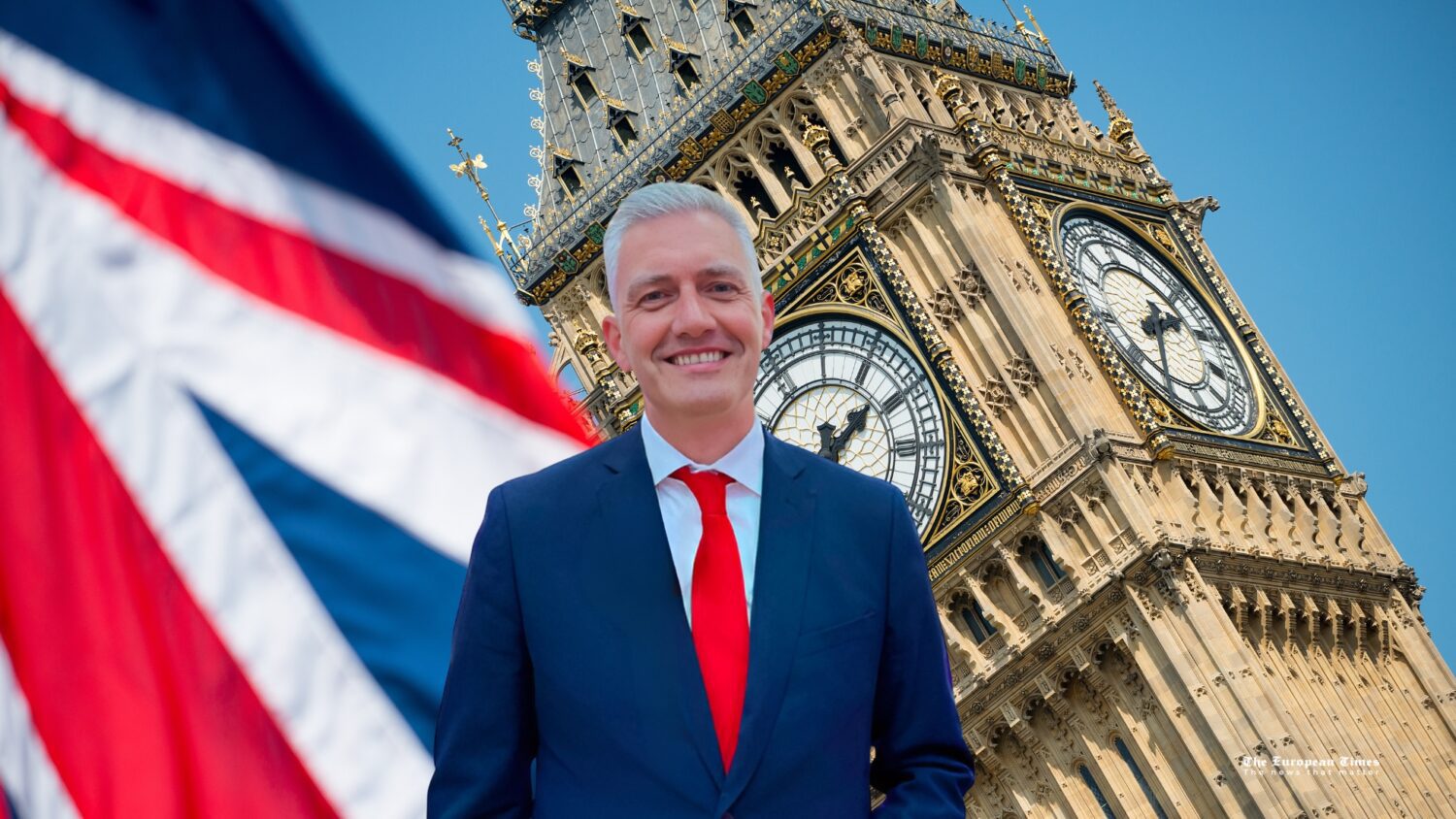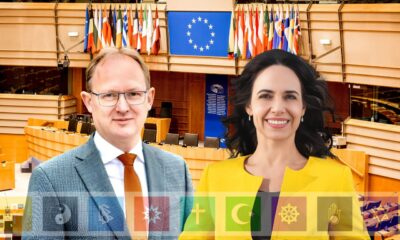Politics
Romanian Patriarchate distances itself from Archbishop Teodosii of Tomi

The Romanian Orthodox Church has distanced itself from the position and actions of Archbishop Teodosii of Tomi (Constanța), who openly campaigned in his diocese for Calin Georgescu as “God’s messenger.” The Archbishop does not hide that he is an admirer of Vladimir Putin, D. Medvedev and Donald Trump, “who speak of peace” and “Christian values.” The high cleric has attracted the attention of the Romanian and Western media with his undisguised campaigning in his diocese for Georgescu.
The position of the Romanian Patriarchate states: “The Romanian Patriarchate categorically distances itself from the statements of His Eminence Father Teodosii, Archbishop of Tomi, in an interview given to the publication “Le Figaro” regarding Mr. Calin Georgescu and Russian President Vladimir Putin. The next working session of the Holy Synod will consider the case of His Eminence Theodosius for the repeated violation of the decisions of the Holy Synod regarding the election campaigns.”
In an interview with the French publication published on December 6, Archbishop Theodosius said of the former candidate for president of Romania, Calin Georgescu, that “he is more of a man of God than a politician. He is the one sent by God.” “He is a believer. The grandson and great-grandson of a priest who defends Christian values and is interested in the everyday life of Romanians.” And he described Vladimir Putin as “a man of peace and a builder of churches,” “whom we should not be afraid of.” When asked by French journalists how this opinion of his corresponded to the war against Ukraine launched on the orders of the Russian dictator, the senior cleric evaded the answer, blaming the war on “the bad guys.” According to him, Georgescu, who sympathizes with Putin, “will resolve these contradictions.”
In his defense, the archbishop said that he had not violated anything, the interview should have been published after the elections, not before them. The definition of “messenger of God” was of a general nature, not political, it was made because of the personal qualities of the candidate. And about Putin, he “spoke in principle that he was a founder of churches, not specifically”. In 2006, Archbishop Theodosius admitted that he had been recruited by the “Securitate” in 1987, when he was an assistant at the Institute of Theology in Bucharest. “I think I was vulnerable because I had applied for a scholarship to study abroad,” the archbishop said, noting that he had only reported on issues “of great national interest”.
Politics
Georgia, Election of an ex-footballer as the new president booed by demonstrators

By Willy Fautré from Tbilissi – During yesterday’s demonstrations at the parliament, some citizens have brought diplomas – to mark the fact that the “Georgian Dream” presidential candidate, ex-footballer Mikheil Kavelashvili, is just a puppet of the pro-Kremlin party and lacks the needed education to bear the title of “President of Georgia.”
The protesters stated that the ongoing presidential elections in the Parliament of Georgia are an illegitimate process.

President Salome Zurabishvili has also arrived at Parliament, and police and special forces have been mobilized. Ministry of Internal Affairs personnel are stationed in the area surrounded by iron railings in front of the building.
The police forces are also deployed at Freedom Square, where water cannon vehicles are on standby.

Source: Willy Fautré (HRWF) [email protected]
Contested election of the new president
On 14 December, the electoral college elected the president of Georgia. Only one candidate, Mikheil Kavelashvili, had been nominated for the position. Opposition parties were not participating in the elections because they considered them illegitimate.
He is the first indirectly elected president in Georgia, a position he will hold for five years.
The presence of the majority of the full composition of the electoral college – at least 151 members – was sufficient to conduct indirect elections of the president.
The vote of 2/3 of the full composition of the collegium – at least 200 members – is enough to elect a president.
The collegium includes 150 members of the parliament, all members of the highest representative body of the Autonomous Republic of Adjara – a total of 21 deputies, all 20 members of the highest representative body of the Autonomous Republic of Abkhazia and 109 members from the city councils.
The Chairman of the Central Election Commission said 225 members participated in the vote, with 1 ballot being invalid.
Kavelashvili received 224 votes in his favor. His candidacy was not supported by Ada Marshania, a member of the Supreme Council of Abkhazia, who stated that she did not approve of Kavelashvili’s candidacy.
The procedure took place in the Parliament’s plenary session hall.
The Chairman of the CEC handed over the final protocol to the Speaker of Parliament, Shalva Papuashvili, and declared the election process complete.
Amendments to the Code of Administrative Offenses to make it more repressive
This weekend, the Georgian Dream party adopted in a hurry amendments that will significantly increase sanctions for violations that the police usually use against demonstrators.
The new regulations provide for:
- Increasing the fine for obstructing traffic from 1,000 to 2,000 GEL, and suspension of driving privileges for 1 year;
- Increasing the fine for damaging the appearance of the city from 50 to 1,000 GEL and 2,000 GEL for repeat violations;
- Increasing the fine for violating the norms of assemblies and demonstrations from 500 to 5,000 GEL and a fine of 15,000 GEL or administrative imprisonment for organizers;
- Illegal wearing of an MIA uniform, punishable by a fine of 2,000 GEL and its confiscation;
- Failure of a parent or other legal representative of a child to raise and educate a minor or to fulfill other duties towards him/her. This has been added to the commission of an act provided for in Article 173 of the same Code (disobedience to a lawful request of a law enforcement officer).
The amendments also expand the grounds on which a person can be detained, and their items or documents seized.
The new government is obviously trying to intimidate the population by disproportionately increasing sanctions for actions related to gatherings, demonstrations and protests.
Politics
EU updates Air Safety List


The EU has issued an updated list of airlines considered unsafe and banned from flying in the EU. The latest update adds Air Tanzania to the list due to safety concerns identified by the European Union Aviation Safety Agency, while suspensions previously imposed on Pakistan International Airlines were lifted.
Currently, 129 airlines are banned from EU skies:
- 100 airlines certified in 15 countries, due to inadequate safety oversight by their national aviation authorities
- 22 airlines certified in Russia, as well as 7 airlines from other countries, based on serious safety deficiencies
EU’s commitment to safe flying
Flying is one of the safest ways to travel, thanks to the EU air safety policies. These policies ensure the highest levels of safety for passengers and promote cost-efficient rules that facilitate the free movement of products, services and people. The EU aviation safety system is overseen by the European Commission, the European Union Aviation Safety Agency and National Aviation Authorities. Its rules apply in all EU countries and cover all key areas of aviation including airworthiness, aircrew, aerodromes, air operations and the provision of air navigation services.
The implementation of the single aviation market has significantly increased air traffic and the number of airlines operating in Europe. To keep pace, the EU has prioritised work on effective aviation safety standards. The EU Air Safety List bans or restricts unsafe third-country air carriers that fail to meet international safety standards from flying in European skies and informs passengers of any such carriers.
The EU’s approach to safety management in aviation is based on occurrence reporting where safety-related events in civil aviation are tracked, analysed and followed up. Common rules on accident investigations are also designed to prevent the reoccurrence of dangerous incidents.
Aviation safety is a global concern, making international cooperation essential. The EU works closely with the International Civil Aviation Organization, provides technical assistance to and cooperates with third countries, and negotiates bilateral aviation safety agreements with key international partners to help ensure safe skies around the world.
For more information
EU Air Safety List
Press Release: Commission updates EU Air Safety List and adds Air Tanzania to the airlines banned within the European Union
Questions and Answers: European Commission adopts new EU Air Safety List
Transport modes: Air
Aviation safety
Aviation Safety Rules
EU protects: How the EU helps us fly safely
European Union Aviation Safety Agency (EASA)
Source link
Politics
UK Appoints David Smith MP as Special Envoy for Freedom of Religion or Belief

In a significant move for global religious freedom, the UK Government has appointed David Smith MP as its new Special Envoy for Freedom of Religion or Belief (FoRB). This appointment, announced in early December 2024, signals the government’s commitment to advancing religious liberty across the globe and responds to increasing concerns over the persecution of religious minorities in many parts of the world. Smith, a Conservative MP with a strong track record on human rights issues, takes on a critical role at a time when religious freedoms face unprecedented challenges worldwide.
A Crucial Appointment for Religious Freedom
The new position of Special Envoy for FoRB was created in 2019 as part of the UK’s ongoing commitment to defending freedom of religion or belief for people of all faiths and none. The envoy works with international partners, including governments and civil society, to promote religious freedom, counter religious persecution, and support those who are oppressed because of their faith.
The announcement of Smith’s appointment was welcomed by a wide range of religious and human rights organizations. According to a statement from the UK government, the role will involve championing religious freedom in diplomatic discussions, strengthening the international coalition for religious liberty, and advocating for policies that protect the rights of religious minorities worldwide. Smith’s responsibilities will also include monitoring global trends related to religious freedom and providing guidance on how the UK can support vulnerable communities.
The Foreign, Commonwealth, and Development Office (FCDO) emphasized that the appointment of a dedicated envoy underscores the UK’s resolve to ensure that religious freedom remains a central tenet of its foreign policy.
David Smith: A Defender of Religious Liberty
David Smith, a Member of Parliament for over a decade, is known for his advocacy of human rights and his commitment to religious freedom. His appointment to this high-profile position is seen as a logical step, given his background in championing issues related to freedom of conscience, expression, and belief.
Smith has long been involved in supporting religious communities facing persecution, particularly Christians and other minorities in conflict zones like the Middle East. In his parliamentary work, he has regularly spoken out on the importance of religious freedom as a fundamental human right and has pushed for stronger UK and international action against regimes that suppress religious expression. Smith’s extensive experience working on humanitarian issues makes him a powerful advocate for those suffering under oppressive regimes.
As the new Special Envoy, Smith will now be tasked with expanding these efforts on a global scale, leveraging his political influence and relationships to press for meaningful change.
Welcoming the Appointment: Reactions from Religious Organizations
The appointment has been widely lauded by faith-based organizations and advocacy groups across the UK. Aid to the Church in Need (ACN), a charity that focuses on helping persecuted Christians around the world, praised the selection of Smith, calling it a “significant step” towards addressing the growing global crisis of religious persecution. ACN’s UK director, Dr. Neville Kyrke-Smith, expressed hope that Smith’s work would lead to more coordinated international efforts to protect vulnerable religious communities, particularly in regions like the Middle East and Africa where Christians and other religious minorities often face violent oppression.
Similarly, Christian Concern, an organization dedicated to defending religious freedom, commended the UK government’s decision. Andrea Williams, the CEO of Christian Concern, described the appointment as an “important signal” that the UK is serious about protecting religious freedom. Williams emphasized the importance of Smith working with international counterparts to counter the rise of state-sponsored persecution, especially in countries like China and North Korea, where the freedom to practice religion is severely restricted.
Care, a Christian public policy charity, also welcomed Smith’s appointment, underscoring the importance of having a designated official who can actively engage with international partners to address the complex challenges posed by religious intolerance and persecution. “Religious freedom is an essential human right that must be defended wherever it is threatened,” said a Care spokesperson. “We look forward to working with Mr. Smith to ensure that religious liberty is placed at the heart of the UK’s foreign policy.”
The Role of the UK Government in Global Religious Liberty Advocacy
The creation of the Special Envoy for FoRB was part of a broader initiative by the UK government to elevate religious freedom on the global stage. The UK’s involvement in FoRB issues has historically been robust, with the government regularly highlighting the issue at the United Nations and within diplomatic circles. However, the rise of authoritarian regimes and the ongoing persecution of religious minorities have made the role of the Special Envoy increasingly important.
Smith’s predecessor, Fiona Bruce MP, held the position of Special Envoy for FoRB until recently, and during her tenure, she made significant strides in raising awareness of religious persecution worldwide. She met with Christians, Muslims, Buddhists, Hindus, Scientologists, Bahai’s, Latrer Day Saints and everyone who needed to meet with her. Under her leadership, the UK government took steps to support vulnerable religious groups, including the Yazidis in Iraq, Christians in the Middle East, and Uyghur Muslims in China. Smith’s appointment builds upon this legacy, and experts believe that his extensive experience will help to elevate the UK’s influence on this critical issue.
Smith’s work will not only focus on diplomatic efforts but will also involve collaborating with international civil society groups, religious leaders, and grassroots organizations that are directly involved in defending religious freedom. As the UK’s representative, Smith will be expected to engage with a wide range of stakeholders to foster international cooperation in addressing religious persecution.
Challenges Ahead
Despite the broad support for Smith’s appointment, there are significant challenges ahead. Religious persecution continues to rise in various regions of the world, with many countries adopting increasingly restrictive policies on religion and belief. In China, for example, the government continues to impose heavy restrictions on religious practices, particularly targeting Christian and Muslim communities. In countries like Nigeria and Pakistan, religious minorities such as Christians, Yazidis, and Hindus continue to face violence, discrimination, and displacement.
The Special Envoy’s role is not without its difficulties. Advocating for religious freedom in countries with hostile regimes can be politically sensitive, and the envoy must carefully balance diplomatic priorities with the need to confront human rights abuses. Moreover, given the complexity of global geopolitics, there will be times when the UK’s stance on religious freedom may clash with its economic or strategic interests in certain regions.
However, with Smith’s experience and commitment to the cause, the UK government’s approach to FoRB looks poised to continue making meaningful strides in the global fight for religious freedom.
Conclusion: A Beacon for Global Religious Liberty
David Smith’s appointment as the UK’s Special Envoy for Freedom of Religion or Belief represents a significant step forward in the fight to protect religious freedoms across the world. In a time of rising persecution and intolerance, Smith’s work will be essential in shining a spotlight on the plight of religious minorities and advocating for their rights on the global stage.
With the support of religious and human rights organizations, the UK’s commitment to religious freedom is stronger than ever, and Smith’s appointment signals that the country is ready to continue playing a leading role in defending this fundamental human right. As the world’s attention turns increasingly to issues of religious freedom, the role of the Special Envoy will remain crucial in shaping global responses and ensuring that the freedom to practice one’s faith is protected for all.
-

 Sports6 days ago
Sports6 days agoNew hope for Jannik Sinner: “He stirred consciences.”
-

 Sports6 days ago
Sports6 days agoStill no medals for Simona Quadarella: “I’m mentally tired.”
-

 Sports6 days ago
Sports6 days agoSandro Tonali wants to return to Italy, several clubs interested
-

 Sports6 days ago
Sports6 days agoAlain Prost annoyed by Ayrton Senna TV series: ‘False stories’
-

 Politics6 days ago
Politics6 days agoEuropean Parliament Re-establishes Intergroup on Freedom of Religion or Belief
-

 Sports5 days ago
Sports5 days agoMotoGP returns to Brazil from 2026
-

 Sports5 days ago
Sports5 days agoRoma rediscovers Pellegrini and a smile in the Europa League
-

 Sports4 days ago
Sports4 days agoMilan, Calabria furious after latest rumors: fiery statement








